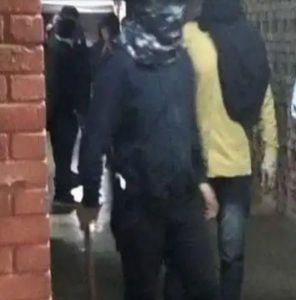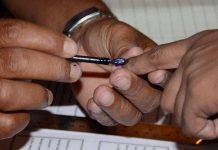 When videos of masked men and bloodied victims surfaced on social media, it triggered a blame game. It is shocking that hundreds of police personnel were standing outside the JNU campus when inside it was being vandalized.
When videos of masked men and bloodied victims surfaced on social media, it triggered a blame game. It is shocking that hundreds of police personnel were standing outside the JNU campus when inside it was being vandalized.
Horror and anger spilled onto the campus when masked mob unleashed violence on students and teachers alike forcing especially women to lock themselves in rooms to escape mob frenzy. In videos and pictures, the mob can be seen carrying hammers, rods, lathis and stones.
Such was the situation that streetlights on the entire stretch outside the university campus were off for more than three hours when the mob continued to heckle students, and other staff of the University. It is not the time to sit quietly but to demand identification, unmasking of masked perpetrators, and arrest of all those responsible for mayhem before schism of trust deficit widens further.
Ironically, the JNU Students’ Union president Aishe Ghosh has been booked for arson, though the blood-soaked face with broken head told an altogether different story and became a new face of JNU.
A free and fair inquiry can dispel doubts over involvement of people and outfits with vested interests. JNU is country’s best Social Sciences University and the attack obviously tries to dent an institution of such a lofty stature. It is an established fact that the JNU students have always been responsible rebels but blaming them for violence and lodging five FIRs against them, instead of arresting the goons would only precipitate the mad frenzy. Can we absolve the Vice Chancellor of his failure to check vandalism at JNU campus?
The judgment delivered on January 10, 2020 by the three-judge bench of Justice NV Ramanna, Justice R Subhash Reddy and Justice BR Gavai of the Supreme Court challenging restrictions in Jammu and Kashmir is relevant here. Justice NV Ramanna, who read out the judgment, quoted from Charles Dickens’ A Tale of Two Cities: “It was the best of times, it was the worst of times, it was the age of wisdom, it was the age of foolishness.”
The Judge said, “Suspension of free movement, Internet and basic freedoms cannot be an arbitrary exercise of power. The court criticized the repeated use of Section 144, a colonial-era rule to ban large gatherings. The JNU Administration and Delhi Police have much to answer. The office of Deputy Commissioner of Police is right across the JNU campus and yet it failed to act in time when law and order situation had touched its nadir at the campus.
The Union Home Ministry too is answerable as it overseas policing in the national capital. Two members of the Union Cabinet, both JNU alumni have condemned the incident but mere condemnation would not suffice. It would ring hollow till masked vandals are unmasked, their affiliation and lineage made public and they are arrested after a fast and fair probe.












